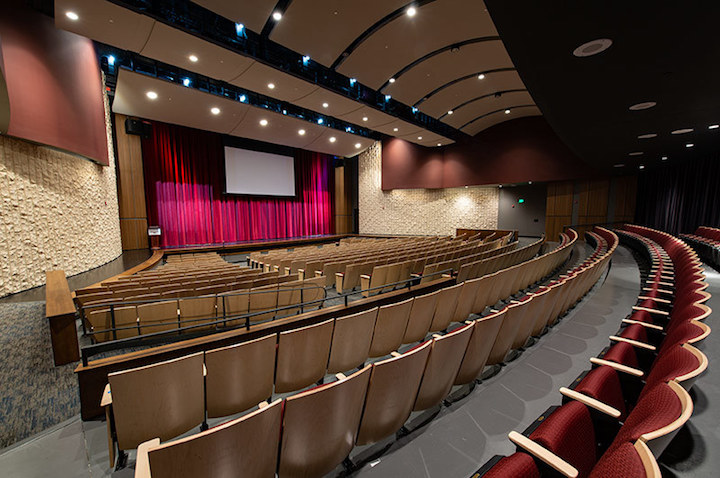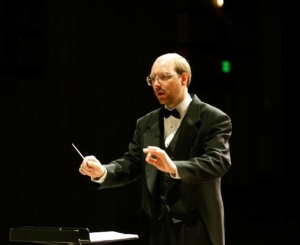The Well-Tempered Ear
Juilliard cracks down on faculty sex abuse and discrimination
3 Comments
PLEASE HELP THE EAR. IF YOU LIKE A CERTAIN BLOG POST, SPREAD THE WORD. FORWARD A LINK TO IT OR, SHARE IT or TAG IT (not just “Like” it) ON FACEBOOK. Performers can use the extra exposure to draw potential audience members to an event. And you might even attract new readers and subscribers to the blog.
By Jacob Stockinger
The MeToo and Time’sUp movements have come to the famous Juilliard School (below) at Lincoln Center in New York City.
Juilliard is investigating allegations, firing professors and changing its regulations in an effort to punish and prevent sexual misconduct and harassment — abuse, assault and discrimination — by faculty members against students.
Some of them include well-known composers and performers, including American composer Robert Beaser (below), who chaired the Juilliard composition department for 25 years and has been fired.
Here is a link to the story from National Public Radio (NPR) that has details about specific cases and problems:
It makes one wonder: Has similar abuse and misconduct happened — or is still happening — at other music schools and conservatories?
Or among private teachers?
Do you know of similar cases?
Do you have firsthand knowledge of — or experience with — such behavior?
The Ear wants to hear.
Tags: #BlogPost, #BlogPosting, #FacebookPost, #FacebookPosting, #MeToo, #SexualHarassment, #Time'sUp, abuse, accusation, allegation, America, American, Arts, audience, behavior, blog, case, chair, Chamber music, choral music, Classical music, composer, Composition, Concert, conservatory, department, details, discrimination, experience, Facebook, faculty, fire, firsthand, gender, happen, harassment, investigate, Jacob Stockinger, Johann Sebastian Bach, Juilliard, Juilliard School, knowledge, lesson, LIncoln Center, link, Ludwig van Beethoven, Madison, misconduct, movement, Mozart, Music, music school, National Public Radio, New York City, NPR, opera, Orchestra, Overture Center, Piano, prevent, private, problem, professor, punish, Robert Beaser, school, Sexism, sexual abuse, sexual assault, sexual discrimination, share, social justice, social movement, Sonata, specific, Student, symphony, tag, Teacher, The Ear, The U.S., U.S., United States, University of Wisconsin–Madison, US, Viola, Violin, vocal music, Wisconsin, Wolfgang Amadeus Mozart
Edgewood College’s virtual fall concert on this Sunday afternoon, Nov. 22, has been CANCELED
Leave a Comment
PLEASE HELP THE EAR. IF YOU LIKE A CERTAIN BLOG POST, SPREAD THE WORD. FORWARD A LINK TO IT OR, SHARE IT or TAG IT (not just “Like” it) ON FACEBOOK. Performers can use the extra exposure to draw potential audience members to an event. And you might even attract new readers and subscribers to the blog.
By Jacob Stockinger
The free live-streamed and pre-recorded virtual Fall Concert on this Sunday afternoon, Nov. 22, at Edgewood College’s McKinley Performing Arts Center (below) has been CANCELED due to new restrictions to prevent and contain the coronavirus. The Chamber Orchestra, Guitar Ensemble and the Wind-Percussion Ensemble were scheduled to perform.
Tags: #BlogPost, #BlogPosting, #ChamberOrchestra, #ClassicalGuitar, #CoronavirusPandemic, #COVID-19, #EdgewoodCollege, #FacebookPost, #FacebookPosting, #JacobStockinger, #McKinleyPerformingArtsCenter, #OnlineConcert, #PercussionMusic, #PublicHealth, #RecordedMusic, #Sundayafternoon, #TheEar, #VirtualConcert, #WindMusic, afternoon, Arts, blog, cancel, canceled, Cello, Chamber music, chamber orchestra, Classical music, Concert, conductor, contain, coronavirus, Edgewood College, Edgewood College Chamber Orchestra, ensemble, Facebook, fall, forward, free, guitar, Jacob Stockihger, Jacob Stockinger, like, link, live-stream, Madison, McKinley Performing Arts Center, Music, online, Orchestra, pandemic, Percussion music, perform, post, posting, prevent, Public health, recorded music, restrictions, schedule, share, Sunday, tag, The Ear, United States, Viola, Violin, virtual, wind music, Wisconsin
Classical music: The Middleton Community Orchestra and UW duo-pianists showcase the remarkable music of Camille Saint-Saens and Mozart in the popular concert that closes its season
10 Comments
IF YOU LIKE A CERTAIN BLOG POST, PLEASE SPREAD THE WORD. FORWARD A LINK TO IT OR, SHARE or TAG IT (not just “Like” it) ON FACEBOOK. Performers can use the extra exposure to draw potential audience members to an event.
By Jacob Stockinger
Here is a special posting, a review written by frequent guest critic and writer for this blog, John W. Barker. Barker (below) is an emeritus professor of Medieval history at the University of Wisconsin-Madison. He also is a well-known classical music critic who writes for Isthmus and the American Record Guide, and who hosts an early music show once a month on Sunday morning on WORT-FM 89.9. For years, he served on the Board of Advisors for the Madison Early Music Festival and frequently gives pre-concert lectures in Madison.
By John W. Barker
The mostly amateur Middleton Community Orchestra (below, in a photo by Margaret Barker) closed its season Thursday night at the Middleton Performing Arts Center with a promising and well-received program.
The centerpiece featured two graduate student soloists from the University of Wisconsin-Madison’s Mead Witter School of Music, pianists Thomas Kasdorf (below right) and Satoko Hayami (below left), who joined in Mozart’s Concerto in E-flat Major, K. 365, for two pianos and orchestra. The two soloists were alert and polished collaborators. (You can hear the energetic and catchy final movement, used in the Academy Award-winning film “Amadeus,” in the YouTube video at the bottom.)
Conductor Steve Kurr (below) set a bouncy pace but a rather fast and overpowering one, and with an orchestra — especially strings — quite overblown by the standards of Mozart’s day.
The MCO was blessed by the loan of a very special model of a Model B Steinway instrument, now owned and lovingly restored by Farley’s House of Pianos. This was paired against a Steinway of much later vintage, owned by the hall. But nowhere was there identification about which piano was which as they sat onstage, much less which pianist was playing which piano (and they switched between the two works utilizing them.) This was disappointing for it prevented making an informed comparison of the two instruments.
Camille Saint-Saens (1835-1921, below) is backhandedly treated as being on the margins of composer greatness. But his scope was remarkable, as witnessed by the two works that were the program’s bookends.
The opener was his humorous Suite, “Carnival of the Animals.” This set of 14 short pieces was written for one private performance, in chamber terms, one player per part. So the orchestra that was used — of 87 listed musicians, 60 of them were string players — became a crushing distortion. The two pianists were a bit formal, but ideally facile.
Saint-Saens made no provision for any kind of spoken text, certainly not in French. In the middle of the last century, the American poet of high-spirited doggerel, Ogden Nash, wrote wickedly funny verses with offbeat rhymes and puns to go with each movement.
It was these Nash verses that Wisconsin Public Radio host Norman Gilliland (below), who was only identified as the “narrator,” read with a good bit of tongue-in-cheek. Nowhere are these at all identified or credited in the bumbling program booklet. (Many in the audience might have just thought that they were written by Gilliland himself.)
In many of the suite’s movements, Saint-Saens quoted or alluded to hit tunes by earlier composers, for parodistic purposes. Unfortunately, there are no program notes in the booklet, so these tidbits would easily go unnoticed by many listeners.
Saint-Saens composed, among his numerous orchestral works, a total of five symphonies, only three of which are numbered. I had originally been given to expect No. 2, a charming work I love, as the program closer. All but the last of them are early works in a graceful post-Classical style.
But No. 3 was composed much later in his life, and in a more expansive style. This is a frequently performed spectacle, unconventional in plan and in scoring. It adds the two pianists and an organ — hence the nickname the “Organ Symphony.”
Unfortunately, the hall has no organ of its own, so the substitute was a rig of electronic organ with its own booming speakers and exaggerated pedal notes. Again totally unmentioned is that this contraption was played by MCO sound technician Alex Ford (below, with the portable electronic organ keyboard from Austria with its computer-screen stops).
This kind of organ could never be integrated into the full orchestral texture and served only to allow the orchestra to play this grandiose score. Such ambition was backed by really splendid and well-balanced orchestral playing.
As intended, the large local audience, with many children and families, was wildly enthusiastic.
Tags: "Amadeus", #AcademyAward, #AlexFord, #AmadeusFilm, #AmateurMusicians, #AmericanPoet, #AmericanRecordGuide, #BlogPost, #BlogPosting, #BlogReview, #CamilleSaint-Saens, #CarnivaloftheAnimals, #ChamberMusic, #ClassicalStyle, #ComputerScreen, #DuoPianists, #ElectricOrgan, #EmeritusProfessor, #EnsemblePlaying, #Farley'sHouseofPianos, #FilmSoundtrack, #GraduateStudent, #IsthmusNewspaper, #JohnW.Barker, #MadisonEarlyMusicFestival, #MeadWitterSchoolofMusic, #MedievalHistory, #MiddletonCommunityOrchestra, #MiddletonPerformingArtsCenter, #MusicCritic, #MusicReview, #NormanGilliland, #OgdenNash, #OrganSymphony, #OscarAward, #PianoConcerto, #ProgramNotes, #RadioHost, #SatokoHayami, #SteinwayPiano, #SteveKurr, #StringSection, #ThomasKasdorf, #Thursdaynight, #UniversityofWisconsin-Madison, #WisconsinPublicRadio, #WolfgangAmadeusMozart, #WORT-FM89.9, #YouTubevideo, Academy Award, advisor, alert, Alex Ford, amateur, ambition, American, American Record Guide, Arts, audience, Austria, balance, balanced, blessed, blog, bookend, booklet, boom, booming, bumbling, Camille Saint-Saëns, Carnival of the Animals, catchy, Cello, centerpiece, Chamber music, charm, charming, children, Classical, Classical music, Classical style, classicalmusic, collaborator, comparison, composer, computer screen, Concert, concerto, conductor, credit, critic, day, disappoint, disappointing, distortion, doggerel, Early music, emeritus professor, energetic, engineer, enthusiastic, exaggerate, facile, families, Family, Farley's House of Pianos, fast, festival, film, final movement, finale, forma;, formal, forward, funny, grace, graceful, grandiose, great, greatness, guide, hall, History, hit, host, humorous, idea, idenitfied, identification, inform, instrument, integrate, Isthmus, Jacob Stockinger, John W. Barker, lecture, like, link, loan, local, loving, Madison, Madison Early Music Festival, margin, Mead Witter School of Music, medieva;, Middleton Community Orchestra, Middleton Performing Arts Center, model, month, movement, movie, Mozart, Music, music review, Musician, narrate, narrator, nickname, night, Norman Gilliland, note, offbeat, Ogden Nash, onstage, Orchestra, organ, organ symphony, Oscar, overblown, overpowering, own, pace, pair, parody, pedal, performer, Pianist, Piano, pieces, plan, player, playing, poet, popular, portable, prevent, private, program, program notes, promising, pun, purpose, radio host, read, record, remarkable, rhyme, Satoko Hayami, scope, score, Season, share, short, show, showcase, soloist, Sound, soundtrack, speakers, special, spectacle, splendid, spoken, standards, Steinway, Steve Jobs, stop, strings, Student, style, Suite, symphonies, symphony, tag, technician, text, texture, Thomas Kasdorf, Thursday, tongue-in-cheek, tune, two-piano, unconventional, United States, University of Wisconsin-Madison School of Music, University of Wisconsin–Madison, UW, UW-Madison, verse, verses, vintage, Viola, Violin, Wicked, wild, Wisconsin, wisconsin public radio, Wolfgang Amadeus Mozart, WORT-FM 89.9, YouTube
Classical music: How is the bad flu epidemic affecting classical music in Madison?
4 Comments
By Jacob Stockinger
It seems like every news report has an update on how the bad flu epidemic this winter continues to get worse, filling emergency rooms and hospital beds, and killing especially the young and the elderly.
So here is what The Ear wants to know: How is the bad flu epidemic affecting the classical music scene in Madison?
After all, the second half of the season is just getting underway. This month will see performances by the Madison Opera, the University Opera, the Madison Symphony Orchestra, the Wisconsin Chamber Orchestra, the Willy Street Chamber Players, the Wisconsin Baroque Ensemble, the Wisconsin Union Theater, various performers at the University of Wisconsin-Madison’s Mead Witter School of Music, and many more.
He wants to hear both ideas and first-person stories or experiences from performers, presenters and audience members.
Has the fear of getting sick kept you, as an individual or group, from performing or affected your performance?
Has the flu affected the overall attendance of performances?
Has the flu, and fear of catching it, already kept you personally from being in a crowd and attending a performance or concert? How about in the future?
What could local music presenters do to help the situation?
Do you think providing surgical face masks would help?
How about providing cough drops?
Should people exhibiting symptoms be asked to leave, either by other patrons or by an usher or another official representative, as The Ear heard was done recently at a volunteer food pantry?
Should organizations make it easier to exchange dates or get a refund if you are ill?
Leave an answer or suggestion in the COMMENT section.
And let us all hope that the deadly flu epidemic starts to ebb very soon.
Tags: #EmergencyRoom, #Epidemic, #MadisonOpera, #MadisonSymphonyOrchestra, #MeadWitterSchoolofMusic, #Sickness, #TheFlu, #WisconsinChamberOrchestra, #WisconsinUnionTheater, answer, Arts, attendance, Bach, Baroque, bed, Beethoven, Cello, Chamber music, choral music, Classical music, composer, concerto, cough, death, drops, Early music, elderly, emergency room, ensemble, experience, first-person, flu, food, future, group, Hospital, idea, ill, individual, Johann Sebastian Bach, Johannes Brahms, kill, local, lozenge, Ludwig van Beethoven, Madison, Madison Opera, Madison Symphony Orchestra, mask, Mozart, Music, news, old age, opera, Orchestra, organization, pantry, performance, performer, Piano, presenter, prevent, prevention, Pro Arte Quartet, refund, report, Season, sick, Sonata, story, suggestion, surgery, surgical, symphony, symptom, United States, University of Wisconsin-Madison School of Music, University of Wisconsin–Madison, University Opera, update, usher, Viola, Violin, vocal music, volunteer, Willy St. Chamber Players, Willy Street Chamber Players, winter, Wisconsin, Wisconsin Baroque Ensemble, Wisconsin Chamber Orchestra, Wolfgang Amadeus Mozart, young
- June 2024
- May 2024
- April 2024
- March 2024
- February 2024
- January 2024
- December 2023
- November 2023
- October 2023
- September 2023
- August 2023
- July 2023
- June 2023
- May 2023
- April 2023
- March 2023
- February 2023
- January 2023
- December 2022
- October 2022
- September 2022
- June 2022
- May 2022
- April 2022
- March 2022
- July 2021
- June 2021
- May 2021
- April 2021
- March 2021
- February 2021
- January 2021
- December 2020
- November 2020
- October 2020
- September 2020
- August 2020
- July 2020
- June 2020
- May 2020
- April 2020
- March 2020
- February 2020
- January 2020
- December 2019
- November 2019
- October 2019
- September 2019
- August 2019
- July 2019
- June 2019
- May 2019
- April 2019
- March 2019
- February 2019
- January 2019
- December 2018
- November 2018
- October 2018
- September 2018
- August 2018
- July 2018
- June 2018
- May 2018
- April 2018
- March 2018
- February 2018
- January 2018
- December 2017
- November 2017
- October 2017
- September 2017
- August 2017
- July 2017
- June 2017
- May 2017
- April 2017
- March 2017
- February 2017
- January 2017
- December 2016
- November 2016
- October 2016
- September 2016
- August 2016
- July 2016
- June 2016
- May 2016
- April 2016
- March 2016
- February 2016
- January 2016
- December 2015
- November 2015
- October 2015
- September 2015
- August 2015
- July 2015
- June 2015
- May 2015
- April 2015
- March 2015
- February 2015
- January 2015
- December 2014
- November 2014
- October 2014
- September 2014
- August 2014
- July 2014
- June 2014
- May 2014
- April 2014
- March 2014
- February 2014
- January 2014
- December 2013
- November 2013
- October 2013
- September 2013
- August 2013
- July 2013
- June 2013
- May 2013
- April 2013
- March 2013
- February 2013
- January 2013
- December 2012
- November 2012
- October 2012
- September 2012
- August 2012
- July 2012
- June 2012
- May 2012
- April 2012
- March 2012
- February 2012
- January 2012
- December 2011
- November 2011
- October 2011
- September 2011
- August 2011
- July 2011
- June 2011
- May 2011
- April 2011
- March 2011
- February 2011
- January 2011
- December 2010
- November 2010
- October 2010
- September 2010
- August 2010
- July 2010
- June 2010
- May 2010
- April 2010
- March 2010
- February 2010
- January 2010
- December 2009
- November 2009
- October 2009
- September 2009
- August 2009
Archives
- 2,495,372 hits
Blog Stats
Recent Comments
Tags
#BlogPost #BlogPosting #ChamberMusic #FacebookPost #FacebookPosting #MeadWitterSchoolofMusic #TheEar #UniversityofWisconsin-Madison #YouTubevideo Arts audience Bach Baroque Beethoven blog Cello Chamber music choral music Classical music Compact Disc composer Concert concerto conductor Early music Facebook forward Franz Schubert George Frideric Handel Jacob Stockinger Johannes Brahms Johann Sebastian Bach John DeMain like link Ludwig van Beethoven Madison Madison Opera Madison Symphony Orchestra Mead Witter School of Music Mozart Music New Music New York City NPR opera Orchestra Overture Center performer Pianist Piano post posting program share singer Sonata song soprano String quartet Student symphony tag The Ear United States University of Wisconsin-Madison School of Music University of Wisconsin–Madison Viola Violin vocal music Wisconsin Wisconsin Chamber Orchestra wisconsin public radio Wolfgang Amadeus Mozart YouTube
















Classical music: It’s clear to The Ear: It will be at least another full year before audiences in the U.S. can safely attend live concerts. What do you think?
7 Comments
PLEASE HELP THE EAR. IF YOU LIKE A CERTAIN BLOG POST, SPREAD THE WORD. FORWARD A LINK TO IT OR, SHARE IT or TAG IT (not just “Like” it) ON FACEBOOK. Performers can use the extra exposure to draw potential audience members to an event. And you might even attract new readers and subscribers to the blog.
By Jacob Stockinger
All the signs point to the same conclusion: It will be at least the fall of 2021 before we can safely attend concerts again – if we are lucky.
These past two weeks, The Ear answered questionnaires sent out by the Madison Symphony Orchestra (below top), which has already canceled the season through January, and the Wisconsin Union Theater (below bottom is Shannon Hall).
If you read between the lines, both questionnaires seemed to suggest the same two things: that the entire 2020-21 concert season will be canceled or postponed; or else that it will feature virtual online performances — for ticket prices (perhaps called a “donation”) that have not yet been announced and may not be acceptable to a lot of any group’s core audience.
Perhaps you disagree. If so, The Ear would like to hear in the comment section what you think and why you think it.
Here is what The Ear, who has talked with other season subscribers and various musicians, has seen and heard.
The United States has now surpassed 5 million coronavirus infections and 163,000 Covid-19 deaths with no sign of slowing down and many signs of accelerating. One widely cited model now predicts 300,000 deaths by this Dec. 1.
Plus, too many Americans refuse to wear masks or to maintain social distancing or to shelter at home to help prevent the spread of the virus.
Add in that we will be fortunate if enough vaccines are found to be safe, efficient and approved for use by Jan 1.
Then – despite federal government’s “Warp Speed” development or fast-tracking of the search for vaccines — there is the time needed to manufacture enough of them.
Then it will take considerable time to distribute them equitably, which other countries and public health agencies around the world demand.
Then, if we hope to reach herd immunity, it will take time to convince enough people to get the vaccine, especially with the growing number of anti-vaxxers.
Then those who do get vaccinated will have to wait a month for the second shot that will be required.
Then we wait a few weeks to see if and how much the vaccine really works – if it is safe and prevents infection or at least lessens the damage of the disease if you do get infected.
Plus, it sees unreasonable to think all of these steps will go without a hitch. So maybe a few more weeks or even months should be added.
Add up the math, and the conclusion seems clear: Performing arts events, like sports and other large in-person gatherings, seem increasingly likely to be canceled or reconfigured for a full year.
Concerts are already taking place in China, and other countries in Asia and Europe seem likely to catch up soon. But music lovers in the U.S. will be lucky if they get to attend a live concert with 100 or 500 or 1,000 or 2,500 other people before the fall of 2021 – at least a full year away. Maybe more.
The Ear could well be wrong. Maybe you see a different conclusion, which we would all love to hear. Perhaps international readers will share estimates about when concerts will begin in their country.
One way or another, we will learn a lot more about how the new music season is being planned and changed in the next three weeks.
Share this:
Tags: #AtLeast, #BlogPost, #BlogPosting, #ChamberMusic, #ChoralMusic, #ClassicalMusician, #ConcertSeason, #CoronavirusPandemic, #COVID-19, #EdgewoodCollege, #Europeanmusic, #FacebookPost, #FacebookPosting, #FederalGovernment, #JacobStockinger, #LiveMusic, #MadisonOpera, #MadisonSymphonyOrchestra, #MeadWitterSchoolofMusic, #MiddletonCommunityOrchestra, #MusicLover, #OakwoodChamberPlayers, #OldPeople, #OperaMusic, #OrchestralMusic, #PerformingArts, #PublicHealth, #ShannonHall, #SlowDown, #SocialDistance, #Stayathome, #TheEar, #TheU.S., #TicketPrice, #UnitedStates, #UniversityofWisconsin-Madison, #WarpSpeed, #WisconsinChamberOrchestra, #WisconsinUnionTheater, #WisconsinYouthSymphonyOrchestras, #YouTubevideo, 2020, 2020-21, 2021, accelerating, acceptable, add, agency, American, Americans, announced, anti-vaxxer, Arts, Asia, at least, attend, audience, blog, cancel, canceled, Centers for Disease Control, Chamber music, China, Chinese, choral music, Classical music, classicalmusic, clear, comment, commentary, Concert, conclusion, continent, core, coronavirus, countries, country, damage, dead, death, December, demand, development, die, disagree, Disease, disguise, distance, distribute, donation, Early music, Edgewood College, efficient, enough, estimate, Europe, event, Facebook, fall, fast-track, federal government, fee, fortunate, forward, group, growing, hear, hitch, Home, infection, international, Jacob Stockinger, January, lessen, like, lines, link, live music, Love, luck, lucky, Madison, Madison Opera, Madison Symphony Orchestra, manufacture, mask, math, Mead Witter School of Music, Middleton Community Orchestra, month, more, mused, Music, music lover, Musician, number, Oakwood Chamber Players, opera, Orchestra, orchestral music, other, Overture Center, pandemic, People, performances, performer, Performing arts, Point, post, posting, postpone, postponed, predict, prevent, price, Public health, questionnaire, reader, refuse, required, safe, same, search, Season, second, Shannon Hall, share, shelter, shot, signs, slow, slow down, social, social distance, spread, stay at home, step, subscriber, suggest, surpassed, symphony, tag, take, talk, The Ear, things, think, ticket, time, trial, U.S., United States, University of Wisconsin-Madison School of Music, University of Wisconsin–Madison, unreasonable, used, UW-Madison, vaccine, virus, vocal music, warp speed, we, wear, weeks, what, why, Wisconsin, Wisconsin Chamber Orchestra, Wisconsin Union Theater, Wisconsin Youth Symphony Orchestras, work, world, you